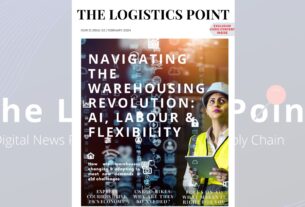Every function across the supply chain is facing a multitude of challenges that are evolving constantly. Beyond raw material shortages and trade disputes, broader issues that have been talked about for years – such as climate change and sustainability – are finally starting to have tangible implications for businesses. We spoke to Prerna Dhawan, Chief Solutions Officer at The Smart Cube, about the transformation of the supply chain and where procurement fits into it.
AI and technology can help you get the data before you meet with a supplier. Automation and the broader drive to digitise the supply chain will free up time and space for more value-adding tasks. Automation brings the data and then the procurement manager can do the business. It is recommended to create a special relationship with key suppliers.
‘Procurement as a function used to be about getting a contract done,’ begins Prerna. It was about getting suppliers onboarded and dealing with paperwork. After the recession of 2008, procurement became more involved in bigger decisions. Prerna says that in the last ten years she has seen procurement being involved in R&D projects, value chain re-engineering, driving sustainability initiatives and more.
The sector woke up and the expectations are much higher now. ‘The biggest challenge now is that stakeholders expect procurement to really make a difference and drive value,’ Prerna goes on. Procurement managers are asked to have the credibility and be able to talk the language of other business functions proficiently.
‘Some procurement organisations have really embraced the challenge and risen up to become even more important,’ Prerna continues. Those who have stuck to just being about cost savings have struggled.
Collaborations
The biggest theme for procurement and the whole supply chain has been collaboration. It runs through every area and it is not surprising so many organisations have embraced it. ‘I have increasingly seen collaboration not just with internal stakeholders and suppliers, but also among peer companies,’ Prerna says. Category managers do not share competitive advantages but they work together to reach the same goals.

This makes sense as what procurement and the supply chain is faced with, are challenges way above the abilities of a single organisation. Collaborations have put the spotlight on supplier innovation too. Now procurement managers are more focused on building a lasting relationship with their key suppliers so they can proactively innovate together and rely on each other’s experience. ‘The type of questions companies are asking their suppliers has changed,’ Prerna explains. Terms have changed too. ‘I am hearing more about Supplier Engagement and Collaboration, rather than Vendor Management.’
Automation Vs Relationships
Over the course of the last couple of years, procurement has automated a huge part of its day-to-day operations. How does this marry with the idea of creating better relationships?
‘AI and technology can help you get the data before you meet with a supplier,’ Prerna explains. She believes automation and the broader drive to digitise the supply chain will free up time and space for more value-adding tasks. ‘Automation brings the data and then the procurement manager can do the business.’ Prerna recommends creating a special relationship with key suppliers.
Investing in suppliers
People are looking into long-term strategies and depending on the items being procured they take a holistic approach. Farmers have become beneficiaries of subsidies by large organisations that want to ensure a secure source of raw materials, for example. ‘Companies are looking at the total cost of ownership,’ Prerna says. In the short term companies might spend more but they invest in the future and manage the broader argument around sustainability.
‘I know this is mostly true for larger and more progressive companies,’ Prerna admits, ‘For mid-size businesses it is more challenging but good examples do exist, and we are seeing more and more emerge.’ ✷



